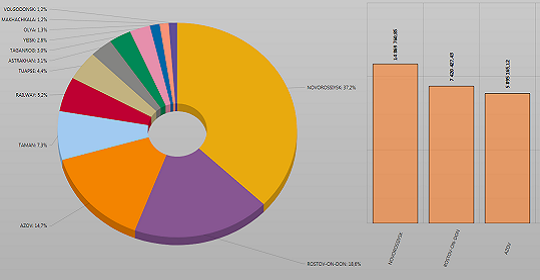According to recent reports, personnel problems in the Russian agro-industrial complex have not yet been resolved, and this could become a serious test for the industry.
Currently, the Russian agro-industrial complex lacks many specialists. These include both blue collar workers and blue-collar workers, including cattle keepers, milkmaids, and machine operators.
Experts note that the problem is long-standing; the agro-industrial complex has not had enough personnel before. But recent years have been a particularly difficult test.
Massive import substitution and the transformation of the Russian economy have led to the fact that the shortage of personnel has worsened in almost all areas, so that companies have to fight for literally every employee.
At the same time, it is not so easy for agro-industrial enterprises to compete with companies in other industries, for example, the defense industry, builders, and retailers.
First of all, the problem becomes to offer employees high salaries, which would be at the level of those that specialists are accustomed to counting on in other fields.
All this generally leads to the fact that recently companies have become much less “choosy” and are ready to hire employees of almost any gender and age for most positions in order to fill existing vacancies.
How will the agro-industrial complex solve personnel problems?
Now the state and agricultural holdings are already actively working in this direction. A number of measures are being applied that should help, if not completely solve the problem of staff shortages, then at least mitigate it.
Firstly, automation is being widely introduced, this should help make work in the agro-industrial complex simpler and less physically demanding, which will help increase the flow of applicants.
Secondly, agricultural classes are being actively created at universities, thus future graduates are prepared in advance to connect their lives with the agricultural sector.
To do this, they receive the necessary skills that will be in demand in specific jobs.
In addition, recently there has been a strong trend towards attracting foreign workers from a number of countries. For example, these are North Korea, India, Sri Lanka.
Finally, the lack of infrastructure in rural areas remains a difficult unsolved problem, which significantly reduces the desire of potential employees, especially young people, to reside there permanently.
Therefore, equalization of living conditions in the city and in rural areas may become one of the main conditions, the fulfillment of which would make it possible to solve the personnel problem in the agricultural sector in the foreseeable future, experts say.

